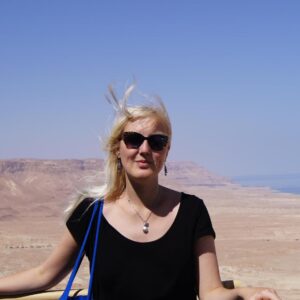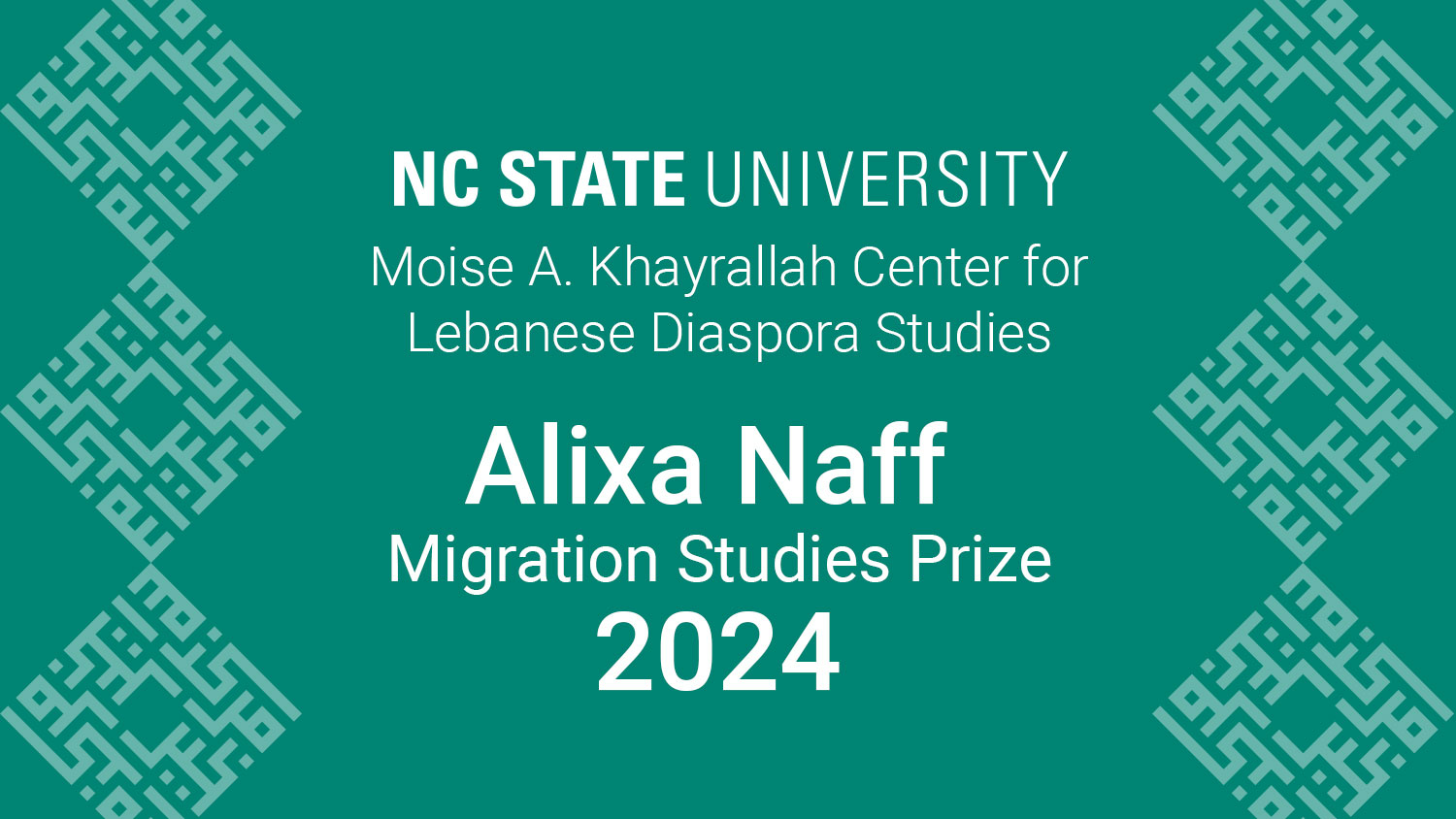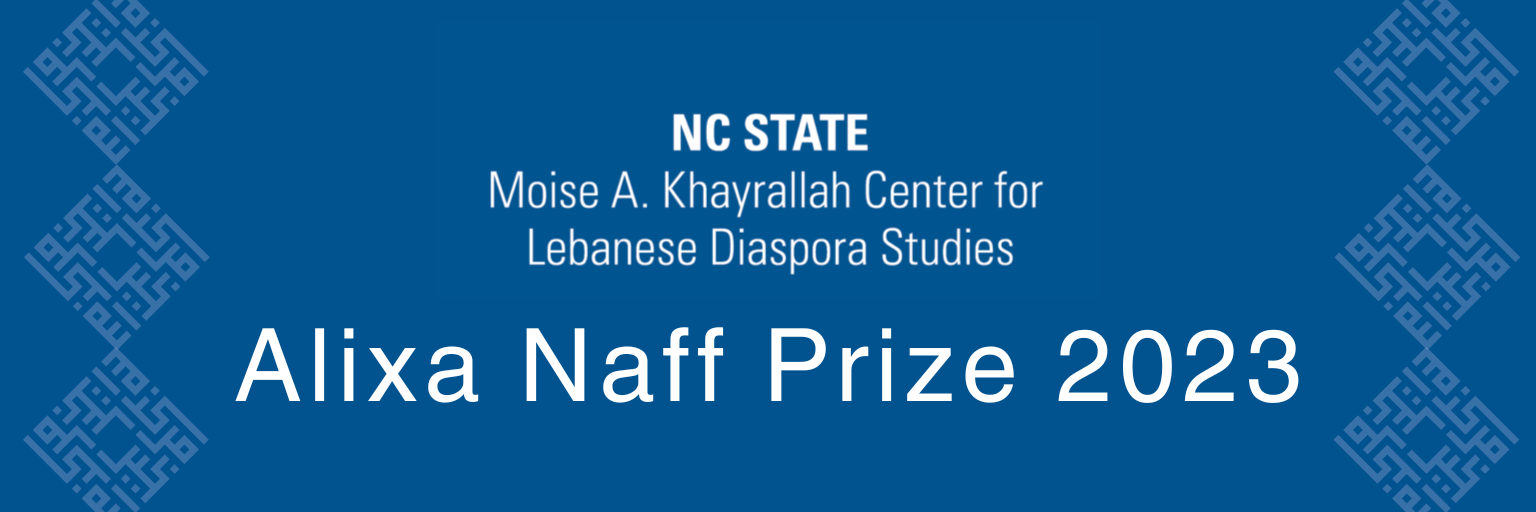Khayrallah Center Announces 2017 Prizes in Migration Studies
Scholar Award Winner: Dr. Benjamin White

Benjamin Thomas White teaches history at the University of Glasgow, Scotland, where he is also a member of the Glasgow Refugee, Asylum, and Migration Network (GRAMNet). A Middle East historian by background, he now also teaches the history of refugees in the world since the late nineteenth century. His current research focuses on the past and present of the refugee camp, and he blogs (occasionally) at http://singularthings.wordpress.com/.
In “Refugees and the Definition of Syria, 1920-1939,” Benjamin White has produced a compelling study of the constitutive role that refugees played in Syrian state formation between the French occupation in 1920 and World War II. Through careful engagement with both secondary literature and original research, the article shows how the modern state was formed around, and against, processes of forced migration and displacement. As Kurdish, Assyrian, and Armenian refugees arrived in Syria, the refugee issue provided opportunities for French authorities to assert mandate authority, and in turn for Syrian nationalists to assert national claims. By situating processes of migration and displacement as the linchpin to the history of Syrian state formation, White elucidates the ways in which, over time, discrete groups sought to define the nation by either the inclusion or exclusion of refugee populations. The article deftly concludes with White’s overview of other moments in the history of 20th-century western Eurasia during which displaced populations drove state formation, and in response, nation-states responded to the presence of refugee populations by attempting to incorporate, expel, or instrumentalize them. Through adopting what he terms an ‘itinerant perspective’ on this moment in Syrian history, White encourages us to see displacement (in and beyond the Middle East) as having the ability to recast our understanding of the modern world.
Scholar Award Honorable Mention: Dr. Daniel Hershenzon

Daniel Hershenzon is an Assistant Professor in the Department of Literatures, Cultures, and Languages at the University of Connecticut. His book (University of Pennsylvania Press, Forthcoming 2018) titled “Early Modern Spain and the Mediterranean: Captivity, Commerce, and Communication” explores the 17th-century entangled histories of Spain, Morocco and Ottoman Algiers, arguing that captivity and ransom of Christians and Muslims shaped the Mediterranean as a socially, politically, and economically integrated region. Hershenzon has published articles in Past and Present, the Journal of Early Modern History, African Economic History, History Compass, Philological Encounters, and in edited volumes. He held fellowships from the SSRC, the Mellon Foundation, the European University Institute in Florence, and the Humanities Institute at the Universities of Michigan and Connecticut.
Graduate Student Award Winner: Ms. Ann-Christin Wagner

Ann-Christin Wagner is a Ph.D. candidate in the Social Anthropology Department at the University of Edinburgh and is associated with IFPO Amman’s LAJEH project. In 2017, she was a Visiting Fellow at the Refugee Studies Centre, University of Oxford. Ann’s research lies at the intersection of Development and Forced Migration Studies; it is concerned with rethinking the role of mobility in displacement. Drawing on fourteen months of ethnographic fieldwork with Syrian refugees in a Jordanian border town, she explores how Syrians’ (im)mobilities in exile are shaped by pre-war labor migration schemes and humanitarian action. The particularity of her study lies in its ethnographic engagement with displaced rural populations who gather in remote areas at the margins of both academic and humanitarian imaginaries. Ann’s work seeks to inform humanitarian policy, drawing on her combined experience as a researcher and as a humanitarian practitioner. Prior to her doctoral studies, Ann worked with the International Organization for Migration in Geneva, initially as a fellow of the prestigious German government-funded Carlo-Schmid program.
Ann-Christin Wagner’s “Displacing Displacement among Syrian Refugees in Mafraq, Jordan” paints a nuanced and subtle ethnographic picture of the moving lives of the men and women who have taken up residence in this border town since 2011. Based on fieldwork conducted in this out-of-the-way place in 2016, Wagner’s article makes an important contribution to a growing body of scholarly work dedicated to complicating representations of the Middle East as a disordered place of civil conflict and refugee camps and situating forced displacement within longer histories of labor migration. This is a piece that unfolds in stages, revealing through a series of interwoven case studies the patterns and logic of movement that have shaped the choices of the Syrians who have settled in Mafraq in recent years. Many, Wagner finds, have moved before, working as itinerant laborers in Jordan or finding work as agricultural laborers within Syria. Displacement, then, is nothing new to them, and they have brought the logic of labor migration to their new lives as refugees – using aid, for instance, to provide remittances to relatives still in Syria. Written in elegant, measured prose, the article is as sensitive to the personal deliberations and experiences of individual migrants and refugees as it is to their structural circumstances, and the way in which war has created new restrictions and inequalities, allowing some to profit while also forcing many to become immobile and to stay put where they once would have moved back and forth.
- Categories:


